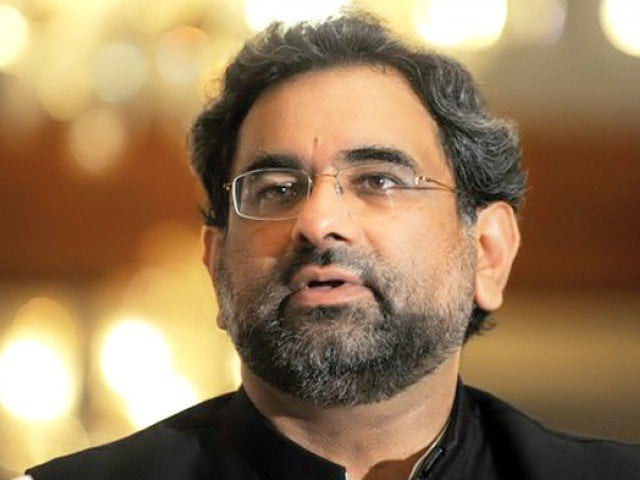PM Abbasi says 'no plan' to let rupee weaken further
Currency has shed 4.9% to the dollar in the past one week

Prime Minister Shahid Khaqan Abbasi. PHOTO: FILE PHOTO
In a text message to Bloomberg, the premier said that his government has "no plans" to further depreciate the rupee and future levels of the currency would be determined by the market.
Since December 8, the rupee has weakened 4.87%, or Rs5.14, to the greenback, signifying its inherent weakness as pressure on foreign exchange reserves and the trade deficit piles up. It ended at Rs110.4 at close of trading on Friday.
While many experts said that rupee depreciation was inevitable, it happened during the course of a week, sending stakeholders in a state of frenzy as to where the currency would eventually end up.
The depreciation also raised fear of rising inflation through expensive imports. However, Abbasi said that the overall impact on inflation would "probably be less than 0.5%".
Govt appeasing IMF for next bailout, suggests market talk
The exchange rate movement is being seen as a strategic initiative apparently on the insistence of the International Monetary Fund.
The State Bank of Pakistan also maintained that it would not intervene to control the rupee.
Miftah Ismail (Special Assistant to the Prime Minister for Economic Affairs) admitted that authorities are letting the rupee relax and would intervene when they feel (unnecessary) pressure on the currency or find speculation in the market.
Another senior banker, who also foresaw the rupee touching Rs115 to the greenback, said the developments suggested that Pakistan has begun talks with the IMF for a new bailout package.
Pakistan borrowed $6.7 billion from the IMF under a 36-month programme which ended in September 2016 to fix a balance of payments (import bill) crisis which has again resurfaced.




1733130350-0/Untitled-design-(76)1733130350-0-208x130.webp)













COMMENTS
Comments are moderated and generally will be posted if they are on-topic and not abusive.
For more information, please see our Comments FAQ